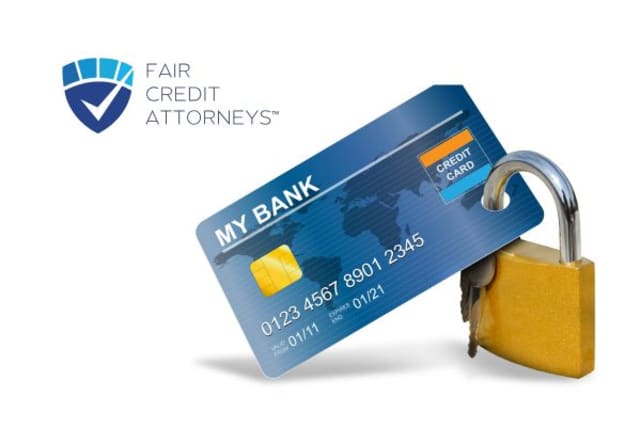Is an error on your credit report holding you back? Don’t panic. You have the right to challenge inaccuracies on your consumer file. This guide breaks down the Equifax Dispute Process, from identifying errors to filing an Equifax dispute and following up on the investigation.
Understanding this process is the first step toward correcting your credit report. If you have questions about a specific error on your credit reports, you can contact Fair Credit Attorneys to discuss your options.

The Importance of a Clean Credit Report
Your credit report is more than just a document; it is a snapshot of your financial life. Lenders, employers, and even landlords use it to make decisions about you. Inaccurate information, from a mistaken late payment to an account that is not yours, can harm your credit score and limit your access to credit, loans, and even housing.
The three major credit bureaus, Equifax, Experian, and TransUnion, collect information from various sources, and mistakes happen. Learning how to properly file a dispute with each of them is critical to protecting your financial health.
Learn More: Here are a few examples of credit report errors that may occur.
Step 1: Obtain and Review Your Equifax Credit Report
Before you can file a dispute, you must know what information is on your report. You are entitled to a free copy of your credit report from each of the three major credit bureaus once a year through AnnualCreditReport.com.
Regularly pulling your report is a good habit. Once you have your Equifax report, review it carefully. Look for things like incorrect personal information, accounts that you do not recognize, incorrect payment statuses, or accounts that have been reported more than once. Pay close attention to any details that seem wrong.

Step 2: Gather Your Supporting Documents
The success of your dispute hinges on the evidence you provide. Once you have identified an error, gather all the information and supporting documents that prove your case. This can be anything from a canceled check showing a payment was made on time to a marriage certificate that proves a name change.
If the error is a result of identity theft, a police report or an official FTC Identity Theft Report is crucial. The more evidence you can provide, the stronger your case will be.
Step 3: Choose Your Method to File a Dispute
There are three primary ways to initiate the Equifax dispute process: online, by mail, or by phone. Fair Credit Attorneys can help you with this process.
Online Dispute
The online method is often the fastest and most convenient. To file an online dispute, you’ll need to create a myEquifax account. Once logged in, you can navigate to the dispute center.
The online portal allows you to select the specific items you are disputing and upload your supporting documents directly. This provides a digital trail of your claim and often results in a quicker investigation response.
Did you know? The Fair Credit Attorneys offer free consultations.
Dispute by Mail
For those who prefer a physical paper trail, filing by mail is a good option. You will need to write a detailed letter outlining the inaccurate information on your credit report. This letter should include your personal information, such as your full name, current address, and Social Security number, along with a clear explanation of why you are disputing the item.
Attach copies (never originals) of your supporting documents and a copy of the portion of your credit report with the errors highlighted. Send your letter via certified mail with a return receipt requested. This provides legal proof that Equifax received your dispute.
Dispute by Phone
You can also file a dispute by calling the number on your Equifax credit report. Be prepared to provide the necessary personal and account information and clearly state the nature of your dispute. While this method is a good starting point, it is recommended to follow up with a written dispute and documentation to ensure you have a complete record of your communication.

Step 4: The Investigation Process
By law, Equifax has 30 to 45 days to investigate your dispute. Equifax will contact the creditor or lender that reported the information and ask them to verify its accuracy.
During this time, the furnisher of the information, such as the creditor, will review the supporting documents you provided and conduct their own investigation. They are required to respond to Equifax within the designated timeframe.
Step 5: Understanding the Investigation Response
Once the investigation is complete, Equifax will send you an investigation response. This response will detail the outcome of the dispute. If the information was found to be inaccurate, it will be corrected or removed from your credit report.
If the creditor stands by the original information, the item will remain on your report. At this point, the credit error lawyers and consumer attorneys at our firm can evaluate the situation and determine if further legal action is necessary.

Step 6: What to Do If You Disagree with the Response
If you do not agree with the investigation response, you have options. You can file a new dispute with Equifax, providing any new or additional information. You can also contact the creditor directly to challenge the information. Another option is to request that a brief statement of your dispute be added to your credit report. This statement will be seen by any future lender who pulls your credit file and will give them your side of the story.
If the information remains incorrect and is causing you financial harm, it might be time to consider a more formal legal process. Consumer lawyers and seasoned credit error attorneys have experience dealing with these issues and can help you navigate the complexities of federal law.
A Note on Legal Assistance
Navigating the dispute process can be complex, and credit bureaus often have their own legal teams. If you find yourself hitting a roadblock or if you believe a credit bureau or creditor has violated your rights under the Fair Credit Reporting Act (FCRA), seeking legal counsel is a smart move. Our legal team understands the intricacies of the law and can provide the guidance you need to fight for a fair and accurate credit report.
Related: Work with an FCRA attorney to help with any credit report errors you may have.
The Next Steps for Your Credit
Filing a dispute with Equifax is a proactive step toward maintaining your financial health. The process is a right afforded to you by law, and using it effectively can help you correct errors that might be holding you back.
Remember, persistence is key. Even if your initial attempt is unsuccessful, continuing to provide information updates and engaging with both the credit bureaus and creditors can lead to a positive outcome.
If you have questions about the dispute process or need assistance with a persistent credit error, don’t hesitate to reach out at (866) 381-6444. Our team is here to help.



